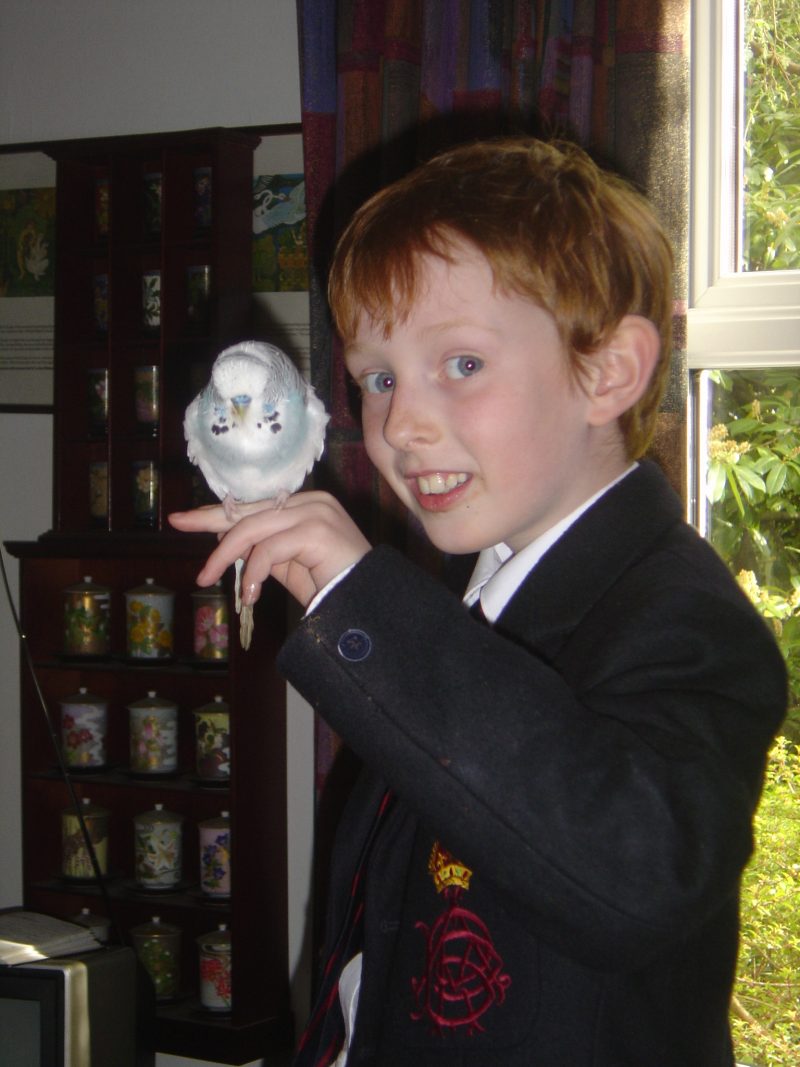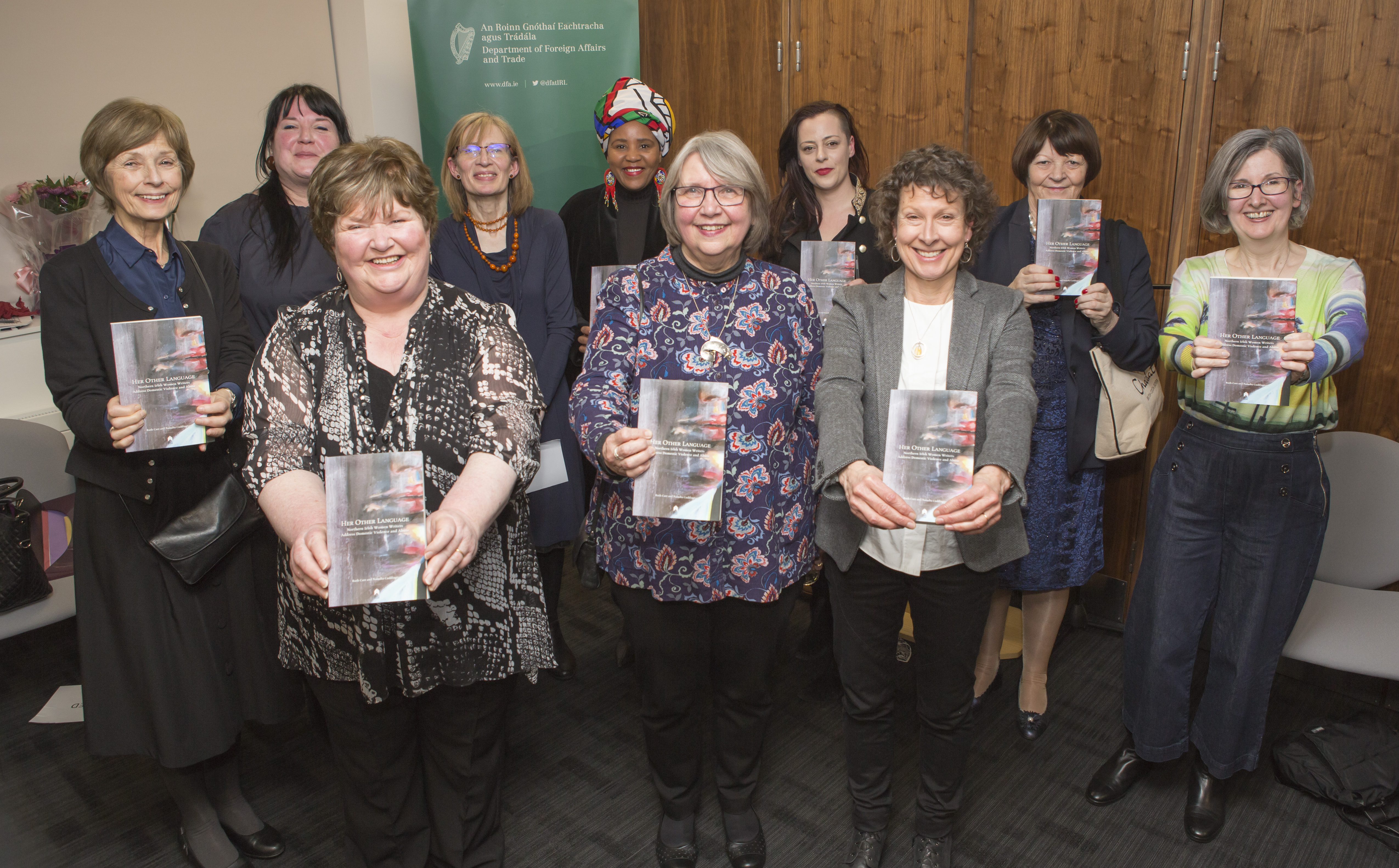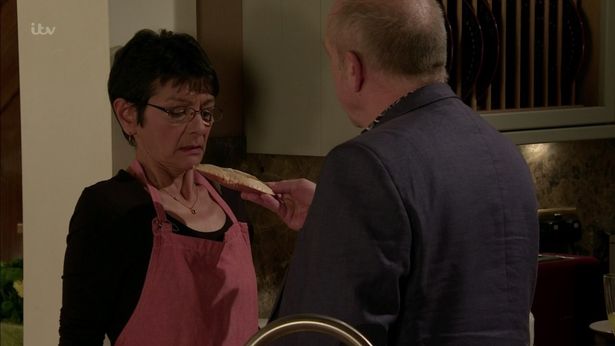

Looking Back at Happiness

FRIENDS AND NEIGHBOURS
There’s a lot of controversy about the Thursday night appreciation of NHS workers and people standing at their gates or doors or windows to clap in support. Some people think it’s government inspired or BBC led but no, it was the thought of a young woman in England I believe, who took the idea from Italy where people sang on their balconies and made noise to show they cared. A genuine reaction. We’ve had three such nights, they began in the dark and are now in bright daylight and we’re able to see each other and call greeting at this terrible time. Last Thursday at eight o’clock as we were gathering and the clapping and banging of saucepans began, suddenly the air was pierced by the mighty horn at Harland and Wolff shipyard. The first time in 20 years and the loudest siren in Belfast made an impact like no other, in fact when it was blowing everyday for the workers to time their arrival at the shipyard, it also woke me – ten to eight, five minutes to surface, then five to eight and rise and shine ready for another day at school. On Thursday it was joined by other ships in the harbour and fireworks somewhere in the distance and it all made for a very emotional few moments. I hope these gestures of thanks will convey our feelings to all essential workers who are bravely battling this deadly virus

Back Row: Sophia Hillan, Natasha Cuddington, Ruth Carr, Nandipha Jola, Annemarie Ní Churreáin, Colette Ní Ghallchóir & Heather Richardson Front row: Nancy Mattson, Paula Ryder & Lorna Shaughnessy
Before I gave up Coronation Street for Lent, I was horrified watching Geoff’s abuse of his wife. We watched Yasmin shrink under his brutality, not often physically because that would leave tell tale evidence, rather psychological, inveigling her to hand over her bank card, persuading her, and her friends, that she is alcoholic, demeaning her because the house is unclean despite her washing it to within an inch of her life. The scene that caused outrage amongst viewers was when he killed her pet chicken and served it up for tea. The story has moved on since then I understand although he has still made his mark.

His sinister behaviour shocked thousands but it rang true to thousands more. During the ‘lock down’ there is evidence that domestic violence is a major fact of life in many homes, men and women who are used to being out and about are suddenly crowed into one house with little or no escape. Sadly children are usually in the middle of the trauma.
Domestic violence takes many forms, abuse can be physical, sexual, verbal, psychological, emotion or financial. More recently ‘Tech Abuse’ has been added, checking mobile phones, recording calls and cameras spying, breaking into on- line banking and tracking through the apt Find My Phone. Abuse can be insidious and it can be instant brutality, it can damage and it can kill.
The highest ever number of domestic violence crimes in Northern Ireland has been recorded by police, figures show that between July 2018 and June 2019 there were 16,575 domestic abuse crimes recorded, the highest since records began in 2004/05. Tragically, figures for this coming 12 months look set to be even higher.
A spokeswoman for Women’s Aid NI said: “While we recognise that reporting on domestic abuse is increasing, it is still a massively under reported crime.
“Many women never disclose domestic violence and do not come into contact with Women’s Aid or other voluntary and statutory agencies. It is important to recognise that police statistics do not reflect the true extent of the problem.”
So giving women, and men as well, confidence to seek help is vital and highlighting the situation is urgent and extremely important.
Women Have A Voice
The publication of an anthology of poems, stories and play extracts by Northern Irish women writers who are addressing domestic violence and abuse will be a talking point and will reach a wide audience. At the launch last month some of the 90 writers read their poems, emotional words which will raise awareness now that this powerful publication, ‘Her Other Language’ has become available in shops. Ruth Carr and her fellow editor Natasha Cuddington have spent over a year compiling the book and it’s a very important work.
There is a spectrum of experiences and the fear, pain and heartbreak is apparent.
Poet Teresa Godfrey has written this piece titled – Survivor.
Sometimes people
can’t bear it
when you reveal
the things
you’ve been through.
They react
with so much horror
that you feel ashamed
that you had somehow
put yourself
in the way
of such a thing.
And, for their sake
as much as your own
you find yourself
playing it down;
apologising
for unsettling them.
And
you feel
you should also
apologise
for surviving
as well as you have done.
Another piece, My Crime, reflects the experience of a little girl whose Nan hurts and threatens her as she washes the child’s hair. I feel my will to fight die out. I know I cannot win. I have stopped attempting to puzzle out what my crime is; why she hates me so much. It’s simple: I should not be here and my existence is my crime.
Favourite Niece ends with the lines: ‘The way he patted the worn arm of his chair a look, a gesture, coaxing her to sit close, as he read from the good book.
The way he muttered as he stroked her hair a ‘penny for them’, his breath thick on her neck.
The way he pulled back cotton sheets and slid into her bed, to warm her up, he said, before prayers.’
In her foreword, Monica McWilliams warns: ‘What you are about to read is both joyful and painful. Fear and tension jump out from the pages.’
These are intimate stories most set out in verse.
This Is An Important Publication
Ruth Carr tells me the idea is to travel all over Ireland to give readings and highlight the subject of domestic violence and abuse.
A response to the anthology from writer and editor Tara McEvoy:
‘Here is an anthology that goes beyond awareness building to engage seriously with the societal prevalence of sexist abuse and domestic violence, and the legacies of that abuse and violence in the lives of survivors. This difficult subject matter is approached with candour, sensitivity and grace; the result is timely, and deeply moving. ‘Her Other Language’is both a revelation and an intervention. Like ‘The Female Line’ before it, this is a landmark anthology and represents an important contribution to Irish literature.’
There is another reason this book is important and that is how it’s given women their voice, restored their self esteem where possible and given them the knowledge that they are not alone.
All contributors have given their work freely and all proceeds will go in support of Belfast and Lisburn Woman’s Aid.
A 24 hour domestic and sexual violence confidential freephone helpline
0808 802 1414
‘Her Other Language’ is available from No Alibis Bookshop, Botanic Avenue, Belfast £10. Or from www.whiterow.net £10 plus postage All proceeds will go to Belfast & Lisburn Women’s Aid.
My Easter Gift To You

Year delivered
1896
Customer
Nicholas II
The Twelve Monograms egg, also known as the Alexander III Portraits egg, is an Easter egg made under the supervision of the Russian jeweller Peter Carl Fabergé in 1896 for Tsar Nicholas II of Russia.[1]
